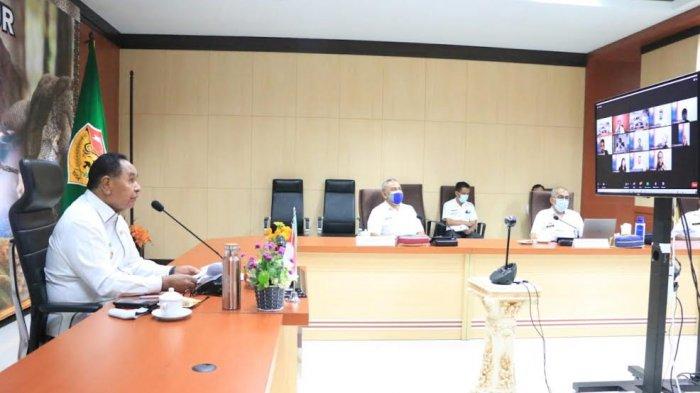This article was published on UNDP Indonesia website
The waters of the Arafura and Timor Seas (ATS) Region, which form a major part of the maritime boundary between Indonesia and Australia are essential for the livelihoods of millions of coastal communities living around the region, supporting food systems and large scale fisheries. The threat of global warming and other issues, such as overfishing, have caused the region to go into serious decline in recent years. A recent webinar hosted by the government of the Indonesian province of East Nusa Tenggara (NTT) addressed the issue of oil spills in the region and called for mitigation efforts to be stepped up.
Located in East Nusa Tenggara Province, the Southern coastal area of Rote Ndao District is at risk from marine pollution from oil and gas exploration around the Timor Sea. To address these issues, the Provincial Government of Nusa Tenggara Timur (NTT) hosted a webinar entitled “Prevention and Mitigation of Oil Spill Management in the Timor Sea” on July 28 to raise awareness about the importance of developing contingency plans in the event of an oil spill in the Timor Sea. Drawing on the expertise of the panelists who represented the fields of marine pollution and mitigation, the event was conducted in partnership with the Directorate General of Marine and Fisheries Resources Surveillance (PSDKP) of the Ministry of Marine Affairs and Fisheries (KKP) and UNDP.

Deputy Governor of NTT, Josef Nae Soi called for the strengthening of preparedness and pollution control measures. “With the creation of a fast, precise and synergized response unit, we can maximize efforts to prevent and control oil spills at sea, while also minimizing losses to the community and the marine environment,” he noted during opening remarks.
He also emphasized that the role and contributions of women need to be prioritized, given that women are most affected by the damage to marine ecosystems. Ir. Emilia J. Nomleni, Chair of the DPRD for NTT echoed the deputy governor’s words, stating. “Women’s needs and aspirations must be an integral part of policy making. Women are key to Indonesia’s development” She also emphasized that preparation and mitigation efforts must include women.
The webinar is part of a series of efforts to raise awareness about the importance of mitigation action and tackling the risk of future oil spills in the ATS region. This is in line with the Decree concerning the mitigation of pollution of waters of NTT published by the province in July 2021, which involved the combination of cross-sectoral local government work with assistance from relevant ministries, with support from UNDP’s GEF-supported ATSEA programme.
UNDP’s ATSEA-2 project is the second phase of the Arafura & Timor Seas Ecosystem Action (ATSEA) Programme. In Rote Ndao, ATSEA-2 will continue to provide support for the pollution management team through information exchange and capacity building, as well as involving women in planning and decision making in Integrated Coastal Management (ICM) planning. “Hopefully this synergistic cooperation can strengthen the Arafura Sea and Timor Sea areas, and have a good impact on the people of East Nusa Tenggara and Indonesia,” said Agus Prabowo, Head of the Environment Unit, UNDP Indonesia.
(Vivekananda Gitandjali)


